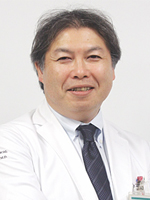Greeting

It is with great pleasure that we announce the 9th annual meeting of the Japanese Society for Acute Care Surgery and the 5th Joint Congress with the Korean Society for Acute Care Surgery at Royton Sapporo from September 8th to 9th, 2017. Now, we are making preparations to make this meeting a memorable one.
The main theme of the 9th JSACS meeting and the 5th Joint Congress with KSACS will be "Open up the future of Acute Care Surgery - Develop the good relationship between emergency medicine and surgery".
The field of Acute Care Surgery is a field of surgery which includes, "Emergency Surgical Care" such as emergency treatment including surgery due to trauma or diseases and treatment of postoperative complications. In this sense, we can also say that Acute Care surgery to be the "roots of surgery". In recent years, however, various researches in the field of emergency medicine have made it clear that surgery alone is not enough to improve the life-saving rate of patients. While importance of the precise surgical techniques of veteran surgeons cannot be denied, there are cases that only a rough but prompt and short operation can help the patient. For example, in the case of severe trauma, the goal of the initial surgery should be to stop bleeding and temporarily repair injured organs. After improving the general condition with intensive care, a second look surgery is performed to restore the function ability of the organs. This strategy can lead to saving the life of the patient. The patient 's life-saving rate will be improved only when "scalpel" and "brain", that is, "surgical science" and "emergency medical science" comes together. How well we can balance these two wheels is an essential requirement for this society to function effectively and fulfill our duty towards our patients. This is the reason, that we have made it the theme of this academic meeting.
Meanwhile, in Japan, severe trauma cases are decreasing with the decrease in traffic accidents, leading to the increase in the number of surgeons without experience of trauma surgery. In urban areas, attempts to concentrate the trauma cases have been made to maintain and improve the quality of treatment, but in Hokkaido it is difficult because of the several problems like distant transportation, the number of physicians, and the number of cases. This has led the gastroenterological surgeons, like us, who do not specialize in emergency surgery, to perform severe trauma surgeries that sporadically occur in these areas. To eliminate this regional disparity, collaboration of different expertise such as 'emergency physician' and 'intensive care physician' specializing in medical emergency and intensive care, as well as intervention radiologist etc. is important. At this academic meeting, we will look for this "New Harmony" and look forward to a large number of presentations to help further development of this Society.
This is the first time, this meeting has been held in Hokkaido. To commemorate this event, we will prepare a social gathering where you will be able to enjoy the specialties of Hokkaido. We would like to invite all participants to participate in the social gathering. As an organizer, it gives me no greater pleasure, than to see you all discussing about tomorrow’s acute care surgery at our social gathering. All of us at Hokkaido University Department of Gastroenterological Surgery II, hope to welcome you all to the northern land during early autumn.

Chairman of the 9th Japan Acute Care Surgery Society Academic Meeting
(Professor, Department of Gastroenterological Surgery II, Division of Surgery, Faculty of Medicine, Graduate School of Medicine Hokkaido University)